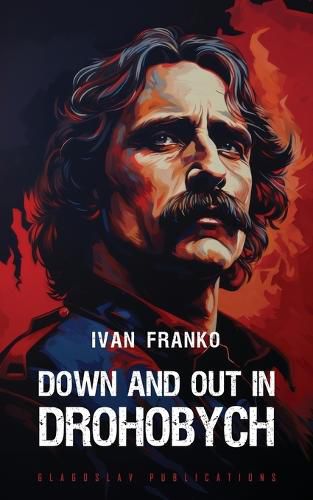Readings Newsletter
Become a Readings Member to make your shopping experience even easier.
Sign in or sign up for free!






This title is printed to order. This book may have been self-published. If so, we cannot guarantee the quality of the content. In the main most books will have gone through the editing process however some may not. We therefore suggest that you be aware of this before ordering this book. If in doubt check either the author or publisher’s details as we are unable to accept any returns unless they are faulty. Please contact us if you have any questions.
Many of the stories in this volume deal with the life of a young boy growing up in Galicia, in the far east of the Austro-Hungarian Empire in the mid-1800s. They depict the poverty and difficult conditions in the region at that time. Although autobiographical in nature, Ivan Franko wrote that the stories could not unreservedly be considered a part of his autobiography, because in all of them he had allowed himself a fair amount of creative freedom.
Ivan Franko's stories often deal with people's struggles with their own conscience, agonizing over the morality of their actions. From those of a young boy having killed a bird, to those of a prisoner having killed a cellmate.
After his second arrest for his strident socialist views in 1880, Franko wrote the deeply psychological novella "Down and Out in Boryslav" in one night under extremely difficult conditions. In it he showed how different people reacted to being unjustly incarcerated.
From the torment imposed on children by Catholic schools of the time to the inner monologue of a burglar being punished by his victim, when reading Franko's prose, one has the stark impression of a director's movie camera shooting scene after scene.
The interests and aspirations of the common people were the cause to which Ivan Franko devoted all of his many and varied talents. Throughout his literary career his creative effort was invariably focused on working-class people and their struggle for a better future.
This book has been published with the support of the Translate Ukraine Translation Program.
$9.00 standard shipping within Australia
FREE standard shipping within Australia for orders over $100.00
Express & International shipping calculated at checkout
This title is printed to order. This book may have been self-published. If so, we cannot guarantee the quality of the content. In the main most books will have gone through the editing process however some may not. We therefore suggest that you be aware of this before ordering this book. If in doubt check either the author or publisher’s details as we are unable to accept any returns unless they are faulty. Please contact us if you have any questions.
Many of the stories in this volume deal with the life of a young boy growing up in Galicia, in the far east of the Austro-Hungarian Empire in the mid-1800s. They depict the poverty and difficult conditions in the region at that time. Although autobiographical in nature, Ivan Franko wrote that the stories could not unreservedly be considered a part of his autobiography, because in all of them he had allowed himself a fair amount of creative freedom.
Ivan Franko's stories often deal with people's struggles with their own conscience, agonizing over the morality of their actions. From those of a young boy having killed a bird, to those of a prisoner having killed a cellmate.
After his second arrest for his strident socialist views in 1880, Franko wrote the deeply psychological novella "Down and Out in Boryslav" in one night under extremely difficult conditions. In it he showed how different people reacted to being unjustly incarcerated.
From the torment imposed on children by Catholic schools of the time to the inner monologue of a burglar being punished by his victim, when reading Franko's prose, one has the stark impression of a director's movie camera shooting scene after scene.
The interests and aspirations of the common people were the cause to which Ivan Franko devoted all of his many and varied talents. Throughout his literary career his creative effort was invariably focused on working-class people and their struggle for a better future.
This book has been published with the support of the Translate Ukraine Translation Program.